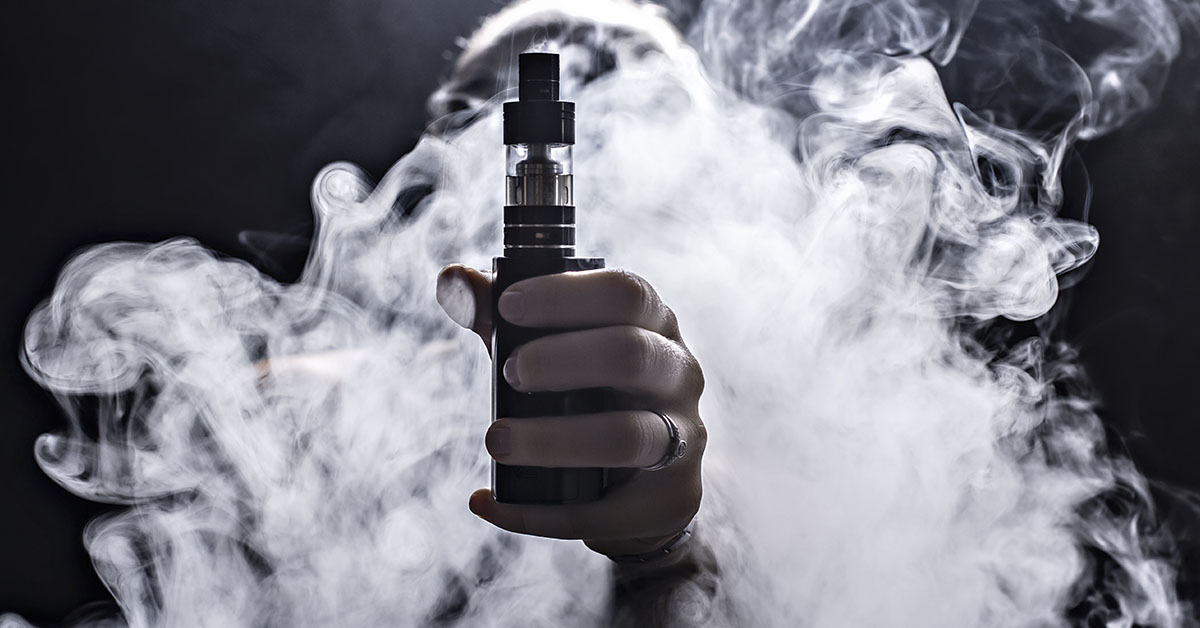Vaping, once considered a safer alternative to traditional cigarettes, has come under increasing scrutiny due to its harmful health effects.1 The Centers for Disease Control and Prevention (CDC) have reported thousands of cases of vaping-related lung disease, and vaping has been linked to numerous deaths. Furthermore, vaping can worsen symptoms of conditions like COVID-19, increasing the risk of severe cases. As awareness of these risks grows, many people are making the decision to quit vaping. This article explores the timeline of what happens to your body when you give up vaping, drawing insights from scientific sources.2
The Immediate Effects (0-24 hours)

When you decide to quit vaping, your body responds rapidly to the change. Within just 20 minutes, your cardiovascular system starts to improve. Your heart rate returns to normal, blood pressure drops, and circulation begins to normalize. This means that in the first few minutes after quitting vaping, your body is already on the path to recovery.
A few hours after quitting, you may experience nicotine withdrawal symptoms. These can include cravings, mood swings, trouble concentrating, irritability, and physical symptoms like headaches and sweating. These symptoms are temporary and typically peak within the first few days.
Days and Weeks After Quitting Vaping (1 day – 3 months)

Within one day of quitting vaping, your risk of a heart attack starts to decrease. Vaping has been linked to an increased risk of heart attacks, but as your blood pressure normalizes and blood oxygen levels rise, this risk begins to fall. After two days, your senses, including taste and smell, start to improve. Vaping can dull these senses, but they begin to recover as your body detoxifies.
Around three days after quitting, nicotine is completely out of your body. Withdrawal symptoms like cravings, headaches, and abdominal cramps may peak during this time but gradually decrease over the following weeks. Your lung health also begins to improve, resulting in less shortness of breath and coughing after a month.
After three months, your blood circulation has significantly improved. Nicotine in vaping products constricts blood vessels, but quitting allows them to return to their normal diameter, reducing the risk of heart problems. Additionally, your lungs start to recover their ability to fight infections, reducing the likelihood of respiratory illnesses like the flu and pneumonia.
No More Vaping: Long-Term Benefits (1 year – 20 years)

One year after quitting vaping, your risk of a heart attack is cut in half. Your cardiovascular health continues to improve, thanks to your body’s healing process. As a result, you’re less likely to experience heart-related issues.
Five years after quitting, your risk of stroke is significantly lower. Vaping has been associated with a higher risk of stroke, but giving it up gradually reduces this risk. Moreover, a decade of not vaping lowers your risk of lung cancer, as well as pancreatic, mouth, and throat cancer. After 15 years, your risk of coronary heart disease becomes similar to that of someone who has never smoked or vaped. This long-term perspective underscores the importance of quitting vaping for your overall health.
Understanding Vaping Withdrawals
Nicotine is highly addictive, and quitting vaping means facing nicotine withdrawal symptoms. These symptoms vary depending on your history of nicotine use and can be divided into physical and mental categories.
Read: It’s time to put cancer warning labels on alcohol, experts say
Symptoms of Withdrawals After Quitting Vaping
Symptoms can come in the form of physical, mental, or psychological changes. These changes may include:
- Increased appetite and weight gain.
- Nausea and vomiting
- Dizziness and headaches
- Digestive issues
- Chest tightness
- Dry mouth.
- Tremors.
- Strong cravings and urges for nicotine.
- Irritability, anger, or anxiety.
- Difficulty concentrating and remembering.
- Sleep disturbances, including insomnia and nightmares.
- An increased sensitivity to pain.
Nicotine withdrawal symptoms typically peak within the first few days after quitting and gradually improve over several weeks. It’s important to note that nicotine withdrawal is uncomfortable but not life-threatening. Understanding the symptoms and their timeline can help you manage the process effectively.
What Triggers Withdrawal?
Nicotine is addictive because it affects the brain, causing a release of endorphins and providing a brief sensation of pleasure. However, this pleasurable feeling is short-lived, leading individuals to seek more nicotine. The rapid processing of nicotine in the body contributes to its addictive nature. When someone dependent on nicotine attempts to quit, withdrawal symptoms emerge due to the brain’s craving for the pleasurable sensation provided by nicotine.
Tips for Managing Nicotine Withdrawal
While nicotine withdrawal can be challenging, there are strategies to help you cope effectively:
- Remember that cravings are temporary and will pass.
- Avoid situations that trigger cravings, such as being around others who vape or smoke.
- Practice self-care through regular physical activity, socializing, and maintaining a healthy sleep schedule.
- Decide on your quitting approach, whether cold turkey or gradual reduction.
- Seek support from healthcare providers who can offer nicotine replacement therapy, medications, and counseling.
Nicotine withdrawal is uncomfortable but manageable, and with the right support and strategies, you can successfully quit vaping and improve your overall health.
In conclusion, quitting vaping is a significant step toward better health, and the timeline of recovery demonstrates the positive impact on your body. Understanding nicotine withdrawal symptoms and their progression can help you navigate this challenging journey successfully. Remember that support is available and with commitment.
Keep Reading: Why Some Heavy Smokers Manage To Avoid Lung Cancer Against The Odds
Sources
- “12 Things That Happen to Your Body When You Stop Vaping.” The Healthy. Kimberly Holland. September 13, 2023.
- “Nicotine Withdrawal: What to Expect When You Quit Smoking — and How to Cope.” Good Rx. N. Saya Des Marais, MSW . October 2022.

